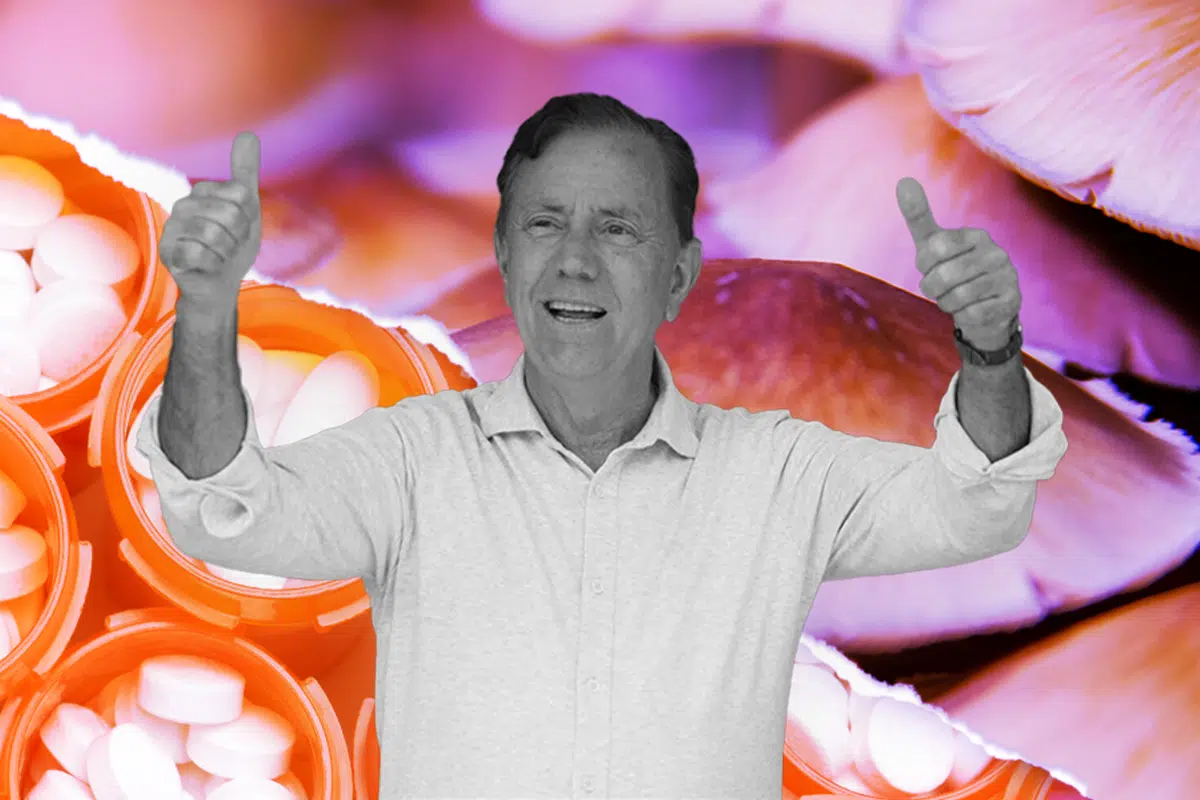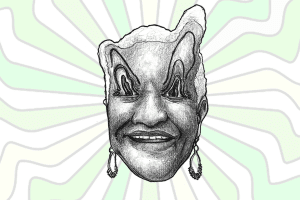Connecticut is slated to provide legal, state-supported MDMA and psilocybin therapy as early as next year.
The northeast state seeks to provide qualified patients with funding to receive MDMA-assisted or psilocybin-assisted therapy as part of a Food and Drug Administration expanded access program.
An estimated initial 100 veterans, retired first responders, and frontline healthcare workers who exhausted available treatment options for their depression or PTSD are set to be first to receive the treatments under a pilot, depending on a mix of funding and FDA flexibility.
The FDA’s expanded access program was established to provide patients with access to drugs that demonstrated safety through at least a Phase I clinical trial but are still being investigated for efficacy, when no sufficient treatments are available.
Read: Biden Administration Prepares for Legalization of MDMA and Psilocybin Within Two Years
However, “clinicians generally hesitate to use the FDA’s expanded access program due to the time, cost, and administrative burden” of gaining approval under the auspices of the scheme, Reason for Hope, the non-profit behind the Connecticut initiative, explained in a recent letter to Congress seeking funding for Connecticut and other state pilot programs.
“The Connecticut Pilot Program offers a workable solution by providing a mechanism to share the administration and cost burden amongst treatment sites, while directly funding the treatment of a select number of qualified patients, development of a temporary regulatory infrastructure, coordination of treatment protocols, and collection of real-world data across treatment sites,” it said in the appropriations letter, written on behalf of the Veteran Mental Health Leadership Coalition.
It highlighted statements made by Dr Walter Dunn, Assistant Professor of Psychiatry at UCLA and Associate Medical Director for the UCLA Operation Mend PTSD Treatment Program, who noted that “given the enthusiasm at the federal and state level to better understand [psychedelic] treatments and to ensure they’re conducted in a safe and ethical manner, this is the occasion to learn from clinical use outside clinical trials.”
How to Grow Shrooms Bundle
Take Both of Our Courses and Save $90!
This would help policymakers find the “acceptable balance of safety, efficacy, and access across the spectrum of clinical situations.”
Read: Why the MDMA Comedown Feels So Bad
The bill, signed off in May by Governor Ned Lamont after gaining bipartisan support, required the Department of Consumer Services to consider adopting “any nonbinding federal guidelines from the federal Department of Health and Human Services regarding the practice of psychedelic-assisted therapy.” It established a nine-person Connecticut Psychedelic Treatment Advisory Board composed of experts appointed by the legislature to oversee the development of a treatment ecosystem in the state.
The pilot program would cease “when MDMA and psilocybin have been approved to have a medical use by the Drug Enforcement Administration (DEA), or any successor agency,” the budget measure signed by Gov Lamont said. It will also establish a “Qualified Patients for Approved Treatment Sites Fund” to supply “grants to qualified applicants to provide MDMA-assisted or psilocybin assisted therapy to qualified patients under the pilot program.”
“The role of the state is to help lay a policy groundwork to lay infrastructure so there are enough trained therapists for folks who need care most to receive it safely and affordably once these drugs are approved,” said Jesse MacLachlan, a former state representative who is now the director of state policy and advocacy at psychedelic-assisted therapy advocacy organization Reason for Hope.
Developments in Connecticut come as the Biden administration prepares for the first potential FDA approval of these medicines within the next couple years. MDMA could receive federal approval next year for use among PTSD patients, with green lights for other conditions expected to follow and approval of psilocybin for depression likely in 2024.
“There’s movement at the state level to establish advisory committees and the infrastructure to regulate and monitor these treatments in anticipation of formal [FDA] approval,” Reason for Hope said in another recent letter to federal lawmakers. “Given the enthusiasm at the federal and state level to better understand the treatments and to ensure they’re conducted in a safe and ethical manner, this is the occasion to learn from clinical use outside clinical trials.
“The Connecticut Pilot Program offers a workable solution by providing a mechanism to share the administration and cost burden amongst treatment sites, while directly funding the treatment of a select number of qualified patients, development of a temporary regulatory infrastructure, coordination of treatment protocols, and collection of real-world data across treatment sites approved under the FDA’s expanded access program.”
Brett Waters, an attorney at Winston & Strawn and co-founder of Reason for Hope and the Veteran Mental Health Leadership Coalition, confirmed that the organizations plan to advance similar legislation in other states, along with “complementary” federal legislation to support additional pilot program development.

DoubleBlind is a trusted resource for news, evidence-based education, and reporting on psychedelics. We work with leading medical professionals, scientific researchers, journalists, mycologists, indigenous stewards, and cultural pioneers. Read about our editorial policy and fact-checking process here.

DoubleBlind Magazine does not encourage or condone any illegal activities, including but not limited to the use of illegal substances. We do not provide mental health, clinical, or medical services. We are not a substitute for medical, psychological, or psychiatric diagnosis, treatment, or advice. If you are in a crisis or if you or any other person may be in danger or experiencing a mental health emergency, immediately call 911 or your local emergency resources. If you are considering suicide, please call 988 to connect with the National Suicide Prevention Lifeline.



